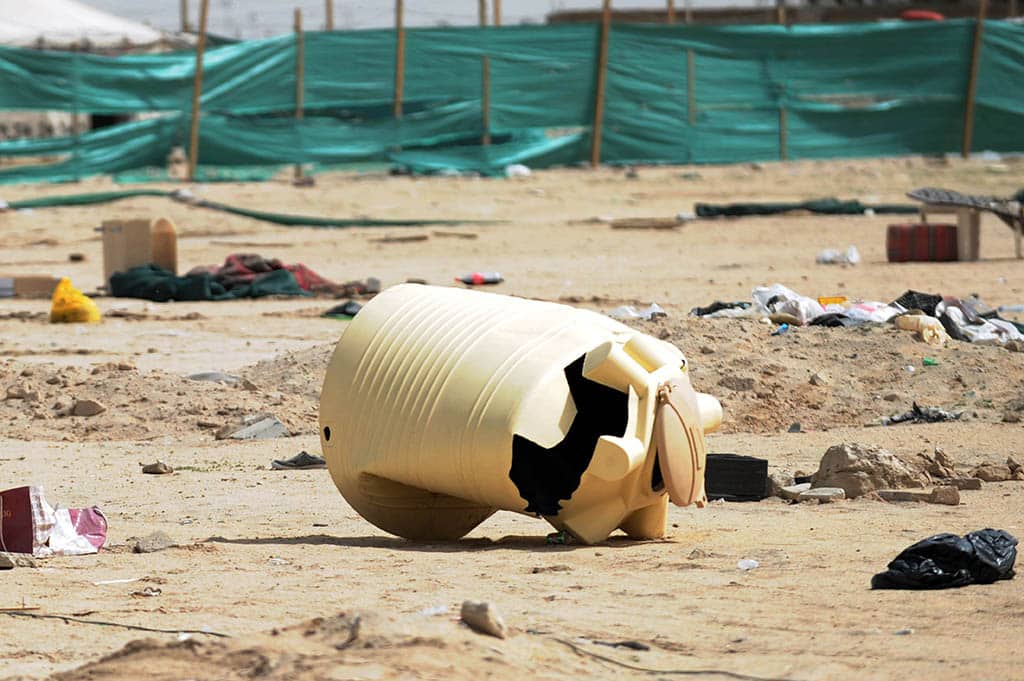By Majd Othman
KUWAIT: When you decide to enjoy your weekend with the family and organize a trip to the desert to experience the camping season, which is one of the most popular seasons in Kuwait during spring and winter, you will be shocked by the mounds of waste everywhere. The garbage piles not only pollute the desert, but also affect desert animals that eat plants, especially since they contain sharp items that can hurt animals and humans.
Nawaf Al-Muwail, member of Kuwait Environment Protection Society, said the society's team recorded various negative behaviors by campers regarding general hygiene that does not need much awareness, as they noted a large number of mounds of garbage and leftovers. They also noted an increase in the use of plastic and cardboard, two materials used for packaging, in addition to single-use bags that campers throw it in the desert, which could be an explosive problem.
Muwail explained this damage cannot be ignored due to its effect on natural and biological diversity, saying many animals cannot distinguish between plastic material and food, which leads to starvation and death as a result of eating the plastic items, because they cannot digest the plastic that fills their stomachs and prevents them from eating. As a form of damage control, he stressed the country needs a clear governmental legislation to reduce the use of plastics and replace it with environmentally friendly alternatives. "We are not calling on the government for a complete ban on plastic, but at least replacing it with other friendly materials."
 KUWAIT: Garbage piles not only pollute the desert, but also affect desert animals that eat plants.
KUWAIT: Garbage piles not only pollute the desert, but also affect desert animals that eat plants.In terms of the impact on desert soil, Muwail explained: "Unfortunately, even after removing the camps, the soil still contains leftover plastic waste buried over the years due to sand movement, which will remain buried for a long time in sandy deposits and become part of the soil's layers. This is what damages the soil and prevents plant growth. At the end of the season every year, the environment contains piles of waste, remnants of camps and many obstacles that do not allow wildlife to regain vitality before the next season begins, after seven harsh months with very high temperatures that exceed 50 degrees every summer."
Despite a law that has been set to regulate the camping season, which states according to environmental protection law that anyone who sets up a tent or camp in a way that affects the soil, they will be fined KD 5,000, in addition to the complete removal of the camp, although there are still many violations that affect the environment.
Muwail elaborated on the possible penalties according to the environmental protection law over repeated violations by campers "for throwing rubbish and waste in other than designated places, a fine of KD 50 to KD 500. Camping and activities harmful to the environment - a fine from KD 250 to KD 5,000. Damage to vegetation, crops and public utilities - a fine from KD 250 to KD 5,000. Damage to Kuwait Bay, fishing, construction - a fine from KD 500 to KD 50,000 or imprisonment from one to three years. Importing objects that do not belong to the environment and natural reserves - a fine of KD 500 to KD 5,000 or imprisonment for a year," he explained.











